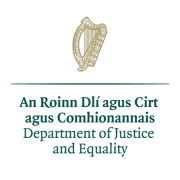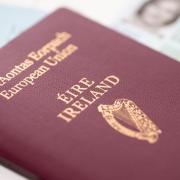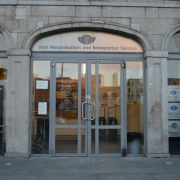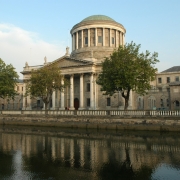COURT OF APPEAL JUDGMENT ON MEMBERSHIP OF THE SAME HOUSEHOLD IN EU TREATY RIGHTS CASES
On the 19th December 2019, the Court of Appeal delivered its judgment in the case of Subhan and Ali v the Minister for Justice and Equality, in which Berkeley Solicitors acted for the Applicants.
The decision is significant for family members of EU citizens who have applications, or are considering making applications, for visas or residence cards based on the fact that they are members of the same household of an EU citizen family member under Directive 2004/38/EC on the Right of Citizens of the Union and Their Family Members to Move and Reside Freely Within the Territory of the Member States, (‘the Citizens Directive’).
The case concerned the refusal of an EU Fam residence card to the cousin of a British citizen, who had lived as the member of his household for many years in the United Kingdom prior to moving to Ireland.
The central issue before the Court of Appeal was the meaning of the term ‘household of the Union Citizen’ for the purposes of the Citizens’ Directive.
The Applicants argued that the household of the Union citizen consists of those persons who are family members and who reside in the same dwelling as the Union citizen. The Respondent argued that what is to be established is that the household concerned is that of the Union citizen, and that the centrality of the Union citizen in the family living arrangements is to be assessed.
The Applicants also put forward submissions regarding other language versions of the term ‘membership of the same household’ and found that there was no ‘head of the household’ test in those versions.
Ms Justice Baker ultimately upheld the decision of the High Court in finding that the criterion of ‘membership of the same household’ is not simply established where family members live under the same roof. Rather, members of the household of the Union citizen must be those persons who are some way central to the family life of the Union citizen.
The Court held:
“68. It may be more useful to consider the notion of household by reference to what it is not. Persons living under the same roof are not necessarily members of the same household and they may well be what we colloquially call housemates. An element of sharing that is necessary in a household may well be met in that the persons living together may agree on a distribution of household tasks and a proportionate contribution towards household expenses. But because, for the purpose of the Citizens Directive, one must focus on the living arrangements of the Union citizen, the members of the household of the Union citizen must, on the facts, be persons who are in some way central to his or her family life, that those family members are an integral part of the core family life of the Union citizen, and are envisaged to continue to be such for the foreseeable or reasonably foreseeable future. The defining characteristic is that the members of the group intend co-living arrangement to continue indefinitely, that the link has become the norm and is envisaged as ongoing and is part of the fabric of the personal life of each of them.
69. It is not a test of with whom the Union citizen would choose to live, but rather, with whom he or she expects to be permitted or facilitated to live in order that his or her family unit would continue in being, and the loss of whom in the family unit is a material factor that might impede the Union citizen choosing to or being able to exercise free movement rights. That second element, it seems to me, properly reflects the core principle intended to be protected by the Citizens Directive.
70. It may be dangerous to give an example, and I do so by way of illustration only. A family member who had resided in the same house as a Union citizen for many years before free movement rights were exercised might well have become a member of the family with whom there has developed a degree of emotional closeness such that the person is integral to the family life of the Union citizen. That person could be a member of a household because the living arrangements display connecting factors that might, in an individual case, be termed a “household”. If the rights of free movement of a Union citizen within the group are likely to be impaired by the fact of that living arrangement, whether for reasons of the moral duty owed to the other members of the group or otherwise, then the rights under the Citizens Directive fall for consideration.”
The Court found that the EU Citizen’s Free Movement rights where not impeded or restricted by refusing a right of residence to his family member in this case.
The full judgment has been published on the website of the courts and can be found here.









